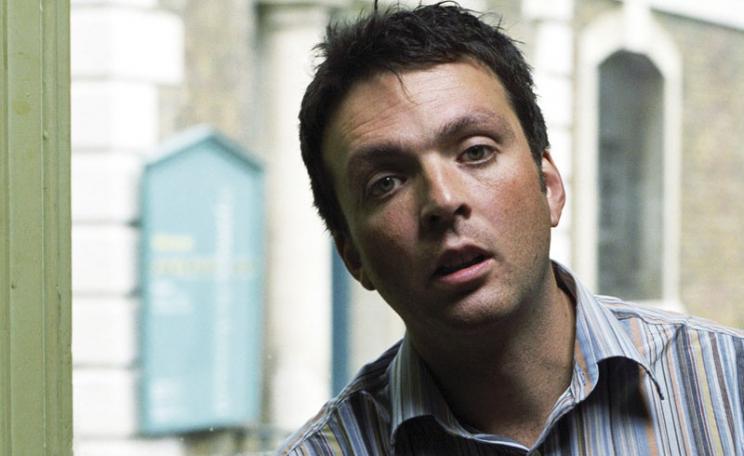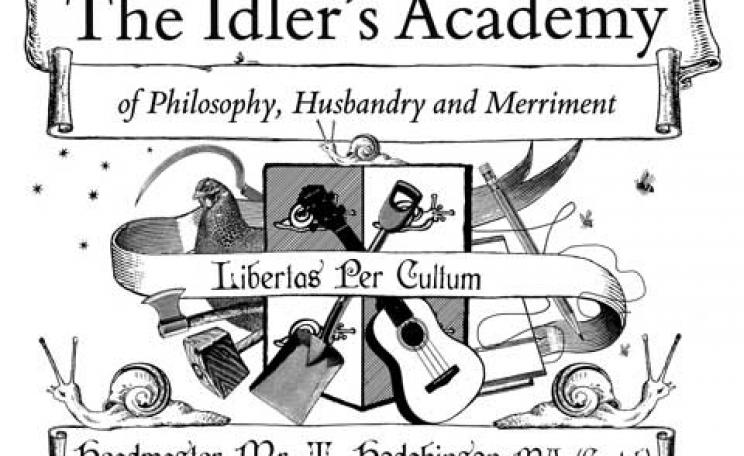Back in 1993, when I started publishing The Idler magazine, it was seen in the wider world as something of a gag, a laugh. I remember that The Daily Telegraph wrote at the time that I would need ‘imagination to keep the joke going’. The idea of idleness as something good was seen as a bit of a giggle: here was someone who thought we should laze around under the trees all day instead of working. Ha, ha, ha.
Well, then as now, the project is in actual fact deadly serious. We need urgently to find alternatives to our current system of work for the simple reason that it is, literally, killing us and driving us crazy.
This truth came home to me when speaking at the fourth Lincoln Men’s Conference in late September. Much of the audience was comprised of people who had suffered from mental health problems. Many were bipolar; others had experienced severe nervous breakdowns.
What fascinated me was that, almost without exception, the breakdowns had been caused by extreme stress in the workplace. In some cases the system had then sent these people into the psychiatric ward, where they were tortured with various toxic drugs with sinister Space-Age names such as Ativan, haloperidol, zoplicone, Prozac, amitryptylene and lithium. When one drug didn’t work, the doctors would try a different one on these poor guinea pigs. One drug would zombify, another would elate to an absurd degree, another cause you to gain masses of weight in a short space of time. Sometimes, when their condition was deemed to have stabilised, they were sent back to the very employers that had caused the breakdown in the first place. An even worse breakdown might then follow. It seemed the psychiatrists were concerned principally with ‘getting the patient back to work’, i.e. returning them as quickly as possible to their role as automatons in the slave-pits of the economy rather than looking at the well-being of the patient.
But what many eventually realised is that it was our crazy system of work that was at fault and not the person. I would argue, indeed, that far from being mad their reaction was the only sane one: a total physical breakdown as a protest against an inhumane situation. As a result of their experiences, all had more or less embraced the idler’s life, had found a new freedom; now they were pursuing a number of different activities, from social work to writing to carpentry to conservation work. They were creating for themselves a life outside of work as conventionally understood. It is a shame they had come to the idle life as a result of being nearly destroyed by the ‘Combine’, as Ken Kesey calls the system in One Flew Over The Cuckoo’s Nest, but better late than never.
Wonderful to relate as well, that many of the audience told me they’d found my books and The Idler to be useful therapeutically, first for telling them that they are the sane ones, but also for encouraging the idea that a degree of melancholy can actually be enjoyed and can be creatively stimulating; after all, would Keats have written An Ode On Melancholy in 1819 if he’d been on Ativan?
So let the scoffing stop. We idlers are the inheritors of the planet and we will not cease from mental fight till we have built a heaven on this earth.
And all this is why I urge you to join my new campaign for a work-free Britain. We need to stop this dangerous drug quickly. To begin with, offices will have special working areas where addicts can go with their laptops, but eventually we would hope to make all offices completely work-free. A workfree Britain would enormously reduce the cost to the NHS of looking after those who suffer from work-related diseases and conditions, so we are going to produce health warnings that will have to be displayed on every computer screen and Blackberry – by law. Here is a selection: Working Seriously Damages Your Health. Working While Pregnant Can Harm Your Baby. Working Seriously Harms You And Others Around You. Stopping Working Reduces the Risk of Fatal Heart and Lung Diseases. Working is Highly Addictive: Studies Show That Working Can Be Harder to Quit than Cocaine or Heroin, and of course, the simple but effective Working Kills.
This article first appeared in the Ecologist November 2007






